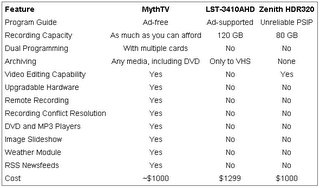Why the AT&T Purchase of BellSouth is Just Another Brick in the Wall
If this contrary posting doesn't find itself into the news, I don't know which one will. AT&T's proposed purchase of BellSouth is all about who will keep their job and who will lose theirs. Many, if not most, of the lost jobs will come due to attrition. I'm no expert on pensions, but if I were working for BellSouth and were about to retire, I think I'd be extraordinarily pleased to think that my pension will be supported by AT&T.
But why does this proposed purchase seem relatively meaningless to me? On paper, the merger makes a great deal of sense, and will allow the new company to better compete in the converging telecommunications marketplace in which companies are now offering video, broadband, and telephone service. So the new AT&T and do this and more, by including wireless services that not all, (say, cable television companies) can.
The fact that there will be a new behemoth in the mix is, in and of itself, not nearly as meaningful as you might expect with a new elephant in the living room. If it were, Microsoft would have long ago taken over this media convergent marketplace, and you better believe Microsoft would love to do this, is trying to do it, and is finding it extremely difficult. In my 30 years' experience of watching merger after merger begin with glowing projections of how the merged communications companies will provide new media services that will "shock and awe," the marketplace reality simply don't pan out. As a matter of fact, I'd watch out for the little players in the coming IPTV game. If they can hold their independence the way TiVo has, these smaller entities with their inherent ability to turn on a dime may steal the spotlight from the singing fat lady.
If I were a regulator, would I take the same position that I am posting here? Absolutely not! Policy makers and regulators must take a long, hard look at this proposed merger and see what impact it will have on competition. That is a completely different concern. Fewer players in the converging media marketplace is, quite simply, not good for competition. I am just as certain about this as I am that the future AT&T will be hard pressed to live up to the press releases that are being reported uncritically by many media outlets yesterday and today.
 I'm hanging my hat on history. Others will hang their hats on the shock value of this proposed merger, and we have already seen this. If you're a business reporter, this is one of those stories that will put you on the top fold of the business section if not the very front page of the newspaper. Journalists are human, too, and they also get a kick out of being on the front page.
I'm hanging my hat on history. Others will hang their hats on the shock value of this proposed merger, and we have already seen this. If you're a business reporter, this is one of those stories that will put you on the top fold of the business section if not the very front page of the newspaper. Journalists are human, too, and they also get a kick out of being on the front page.Now will come the "Wall Street Analysts" who will try to pick apart what this proposed merger means. If the analyst works at one of the market research firms who depend on "revolutionary" sparks to generate a fire and, therefore, business for them, then you better believe they will report this as a "shock" to the marketplace. It's the end of the world as we know it, and we'll explain why for $2500 200-page report or $15,000 briefing to your top executives.
No, the competitors in this marketplace have just been injected with a little adreneline, and the hot stove league is burning at the moment. But I can say on 9 March 2006 that this merger, if it occurs, will, if anything, stifle innovation. What it won't do is give us ubiquitous video, free broadband, and nearly free infinite storage capacity. That is going to happen in spite of this proposed merger.
You may use this content (better still, argue with me!), but please cite my ideas as © 2006, Dr. Bruce Klopfenstein. Best viewed in Firefox thanks to Microsoft going its own way.
 Thanks blogger community for solving my mysterious error. I'll hang on to
Thanks blogger community for solving my mysterious error. I'll hang on to 






